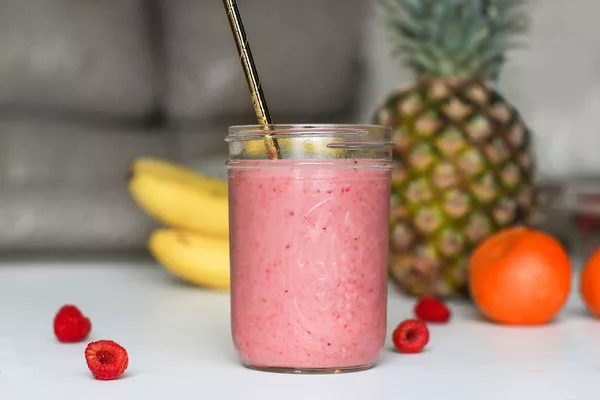When it comes to building muscle, nutrition plays a crucial role alongside exercise. Adequate protein intake is especially important as it provides the essential amino acids necessary for muscle repair and growth. Milk, with its high protein content, has long been recognized as a valuable dietary source for muscle development. However, not all milk varieties are created equal. In this article, we will explore different types of milk and determine which one is best for maximizing muscle growth.
Whole Milk
Whole milk is the full-fat version of cow’s milk, containing approximately 3.25% milk fat. It is rich in protein, vitamins, and minerals, making it a popular choice among athletes and bodybuilders. Whole milk contains both whey and casein proteins, with whey being rapidly absorbed and casein providing a slow-release protein source. This combination can help support muscle protein synthesis over an extended period. Moreover, the higher fat content in whole milk provides additional calories, which can be advantageous for those aiming to increase their overall caloric intake for muscle gain.
Skim Milk
Skim milk, also known as fat-free or non-fat milk, has had the majority of its fat content removed. As a result, skim milk is lower in calories and saturated fat compared to whole milk. While skim milk still contains the same amount of protein as whole milk, it lacks the natural milk fat that contributes to the creamy texture and taste. Skim milk can be an appropriate option for individuals who are watching their calorie and fat intake but still want to consume a good amount of protein.
1% and 2% Milk
1% and 2% milk are reduced-fat versions of whole milk that have undergone partial fat removal. These milk options contain less fat than whole milk but still retain a significant portion of the protein content. They provide a middle ground between skim milk and whole milk in terms of both taste and nutritional composition. 1% and 2% milk can be suitable choices for individuals who want a balance between protein intake and fat content.
Plant-based Milk Alternatives
With the rise in popularity of plant-based diets, many individuals are turning to non-dairy milk alternatives. While these options may not naturally contain as much protein as cow’s milk, some plant-based milks can still provide a decent amount of this macronutrient. Soy milk, in particular, stands out among plant-based milk alternatives due to its higher protein content compared to other varieties. It is considered a complete protein source, meaning it contains all essential amino acids necessary for muscle growth. Other plant-based milk alternatives like almond milk, oat milk, and pea milk generally have lower protein content but can still contribute to overall protein intake when fortified with additional nutrients.
Which Milk is Best for Muscle Growth?
Choosing the best milk for muscle growth ultimately depends on individual needs, preferences, and dietary considerations. For individuals who do not have any dietary restrictions or lactose intolerance, whole milk can be an excellent choice due to its higher calorie and fat content, as well as the presence of both whey and casein proteins. The combination of rapid and slow-release proteins can support muscle repair and growth effectively.
However, if you are watching your calorie or fat intake, skim milk, 1% milk, or 2% milk can still provide a significant amount of protein without the added fat. These reduced-fat options offer a compromise between protein content and overall nutrition.
For those following a plant-based diet or who have lactose intolerance, soy milk emerges as the leading plant-based alternative for muscle growth. With its complete protein profile and comparable protein content to cow’s milk, soy milk can be a valuable addition to a muscle-building diet.
It’s important to note that while milk can contribute to muscle growth, it should not be solely relied upon as the primary source of protein. Combining milk with other protein-rich foods such as lean meats, poultry, fish, eggs, legumes, and dairy alternatives can help diversify your protein intake and ensure you meet your daily requirements.
Conclusion
When it comes to selecting the best milk for muscle growth, whole milk, skim milk, 1% milk, 2% milk, and soy milk are all viable options. Whole milk provides a higher calorie and fat content, which can be beneficial for those aiming to increase their overall caloric intake. Skim milk, 1% milk, and 2% milk offer reduced fat options while still providing a significant amount of protein. Soy milk stands out among plant-based milk alternatives due to its higher protein content and complete amino acid profile.
Ultimately, choosing the best milk for muscle growth depends on individual goals, dietary preferences, and any dietary restrictions or intolerances. It’s important to consider your overall nutritional needs and incorporate a variety of protein sources into your diet. Consulting with a healthcare professional or registered dietitian can provide personalized guidance to help you make informed decisions about your milk choices and optimize your muscle growth journey.
Related topics:


